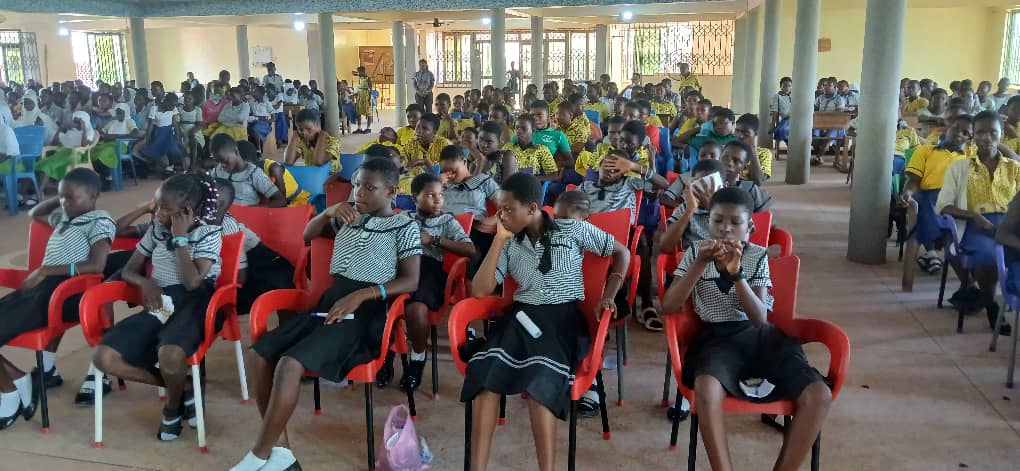In celebration of World Menstrual Hygiene Day, the Suaman-Dadieso Education Directorate has distributed 1,400 sanitary pads to female pupils in the district, as part of the government’s initiative to promote menstrual health and support girls’ education.
This initiative is in line with a promise made by former President John Dramani Mahama in the National Democratic Congress (NDC) manifesto to provide free sanitary pads to school girls across the country.
The goal is to reduce menstrual-related absenteeism and ensure that every girl has the opportunity to stay in school and learn without barriers.
Speaking at the event, the Girl Child Coordinator of the Suaman-Dadieso Education Directorate, Stella Fordwoa, expressed her gratitude for the initiative. “This is a commendable move. In the past, I had to seek donations myself every World Menstrual Hygiene Day to help girls in need. It was often difficult to secure enough support,” she said.
Madam Fordwoa emphasized the challenges many girls face during menstruation, including staying out of school due to a lack of sanitary pads.
“This support will go a long way to improve the academic performance of girls who used to miss school because they couldn’t afford menstrual products,” she expressed.
The District Chief Executive (DCE) for Suaman-Dadieso, Vasco Obour, reiterated the government’s commitment to sustaining the programme.
“As a former teacher and senior housemaster, I witnessed firsthand how girls stayed in dormitories during class hours because they couldn’t afford sanitary pads. I even used my own money at times to help,” he revealed.
Mr. Obour stated that the government’s initiative seeks to ease the financial burden on families and encourage consistent school attendance among female students. He assured the community that the sanitary pad distribution will continue monthly and not be a one-time event.
The President understands the struggles girls face during their menstrual cycle. This initiative is not just about health—it’s about education, dignity, and opportunity,” Mr. Obour concluded.
This effort marks a significant step toward empowering girls through education and ensuring that no student is left behind due to natural biological processes.
By Emmanuel Sowah









